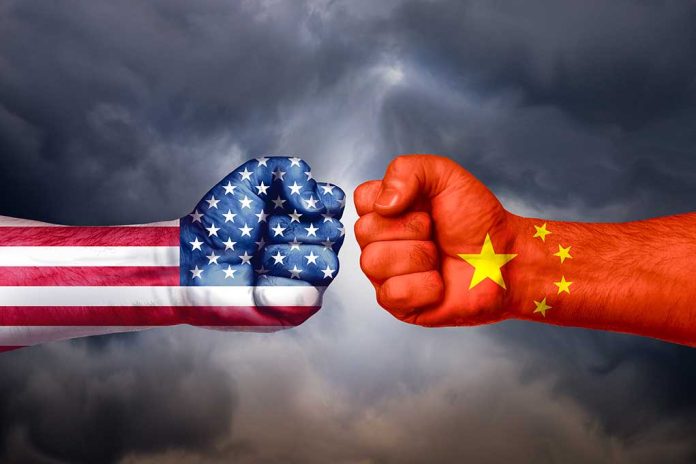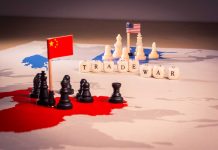
China’s recent move to ban the export of key metals to the United States has intensified the ongoing trade tensions between the two nations, posing potential challenges across several industries.
At a Glance
- China banned the export of gallium, germanium, antimony, and “superhard materials” to the U.S. in response to U.S. restrictions on Chinese chip-making industry.
- The ban includes stricter reviews on graphite exports to the U.S.
- These minerals are essential for manufacturing semiconductors, LEDs, solar cells, fiber optic cables, and military applications.
- The move is seen as part of ongoing trade tensions between the U.S. and China.
China’s Strategic Mineral Ban
China has implemented a ban on the export of gallium, germanium, and antimony to the U.S. This decision comes shortly following U.S. measures aimed at curbing China’s chip-making abilities. These materials are vital for cutting-edge technologies, including semiconductors and military applications.
Gallium and germanium, crucial for semiconductor manufacturing, LEDs, and telecommunications, are predominantly produced in China. The abrupt export ban is a retaliatory measure against the U.S. for its technology curbs on Beijing. This action is considered an extension of the trade conflict between the two superpowers.
China Dials Up US Trade Tension With Tit-for-Tat Metals Ban https://t.co/fvSYJA9pPO
— BNN Bloomberg (@BNNBloomberg) December 3, 2024
Impact on Critical Industries
The industries poised to feel the immediate impact include defense, consumer electronics, renewable energy, and telecommunications. China’s ban on these critical minerals emphasizes its dominant position in global supply chains for such resources. Military Metals Corp. is advancing efforts to secure antimony assets in North America and Europe, seeking to mitigate reliance on Chinese suppliers.
“This is it. The world is already at war, and China has cut off North America’s main antimony supply,” Military Metals Corp. CEO Scott Eldridge said.
The U.S. defense sector’s dependency on antimony for ammunition and other military applications has underscored the significance of securing alternative supply chains. Recent trends indicate a substantial jump in antimony prices due to restricted supply, reflecting global market anxieties over sourcing reliability.
Geopolitical Ramifications
China’s dominant control over these mineral resources highlights the geopolitical stakes of trade disputes. This tit-for-tat strategy by China underscores the escalating tensions that have broader implications for international economic policies. With increased global demand for advanced technology materials, both superpowers are likely to continue leveraging resource control as a strategic tool in broader geopolitical contests.
This export ban serves as a reminder of the critical nature of securing supply chains for commodities essential to national security and technological advancement. As the U.S. amplifies its efforts to diversify supply sources, China continues to assert its leverage, challenging the current state of global trade dynamics.
Sources
- China Blocks Shipment of Rare Minerals to US: What To Know
- China Dials Up US Trade Tension With Tit-for-Tat Metals Ban
- China Is Weaponizing This Metal Crucial To The U.S. Military














